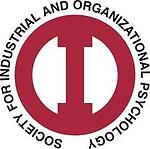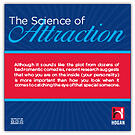 Every year, the SIOP Executive Board presents the Hogan Award for Personality and Work Performance. This award, named after Hogan Assessment Systems founders’ Drs. Robert and Joyce Hogan, recognizes the academic paper or chapter that has the highest potential to further the understanding of personality as it relates to work performance. This year’s Hogan Award recipients are In-Sue Oh, Temple University, Gang Wang, University of Idaho, and Michael K. Mount, University of Iowa, for their article, "Validity of Observer Ratings of the Five-Factor Model of Personality Traits: A Meta-Analysis," published in the Journal of Applied Psychology, volume 96.
Every year, the SIOP Executive Board presents the Hogan Award for Personality and Work Performance. This award, named after Hogan Assessment Systems founders’ Drs. Robert and Joyce Hogan, recognizes the academic paper or chapter that has the highest potential to further the understanding of personality as it relates to work performance. This year’s Hogan Award recipients are In-Sue Oh, Temple University, Gang Wang, University of Idaho, and Michael K. Mount, University of Iowa, for their article, "Validity of Observer Ratings of the Five-Factor Model of Personality Traits: A Meta-Analysis," published in the Journal of Applied Psychology, volume 96.In their winning article, Drs. Oh, Gang and Mount's meta-analytic approach to the relationship between personality traits and job performance reveals insightful conclusions about the validity of observer ratings of Five-Factor Model (FFM) traits versus the validity estimates based on self-report measures of FFM traits. Their results show that observer ratings of personality traits in regards to job performance have a higher validity than those based on self-report ratings – in other words, our co-workers know us better than we know ourselves when it comes to how we approach work.
Drs. Oh, Gang, and Mount’s paper originally stemmed from Dr. Mount’s popular 1994 article focused on the validity of observer ratings of personality factors of sales representatives. Drs. Oh, Gang and Mount expanded the study to include multiple job functions and found that personality is even more predictive of job performance than previously believed. "Our results underscore the importance of disentangling the validity of personality traits from the method of measurement of the traits," the authors stated in their article.
“In-Sue, Gang and I feel very fortunate to have received this award. Joyce and Bob Hogan are very rare among I-O Psychologists because they have had a major impact on both the science and practice of I-O Psychology,” says Dr. Mount. As illustrated in the References section of their paper, the Hogan’s extensive research and literature on personality measurement has helped to make meta-analytical research, such as this, possible.


 They may like it, but extroverted people are less likely to put a ring on it.
They may like it, but extroverted people are less likely to put a ring on it.

 When thinking about personality, one thing that we know is there is no such thing as a good or bad personality. It really depends on the job and situation. This is a point that we regularly emphasize to individuals and organizations. Along these same lines, we know that high scores on personality assessments do not inherently mean good things, and low scores do not always mean bad things – there are positives and negatives to both ends of the continuum. Having stated that, our scores do represent our reputations. Over the course of time people come to expect certain behaviors from us based on our past performances.
When thinking about personality, one thing that we know is there is no such thing as a good or bad personality. It really depends on the job and situation. This is a point that we regularly emphasize to individuals and organizations. Along these same lines, we know that high scores on personality assessments do not inherently mean good things, and low scores do not always mean bad things – there are positives and negatives to both ends of the continuum. Having stated that, our scores do represent our reputations. Over the course of time people come to expect certain behaviors from us based on our past performances.
 I recently listened to a “
I recently listened to a “